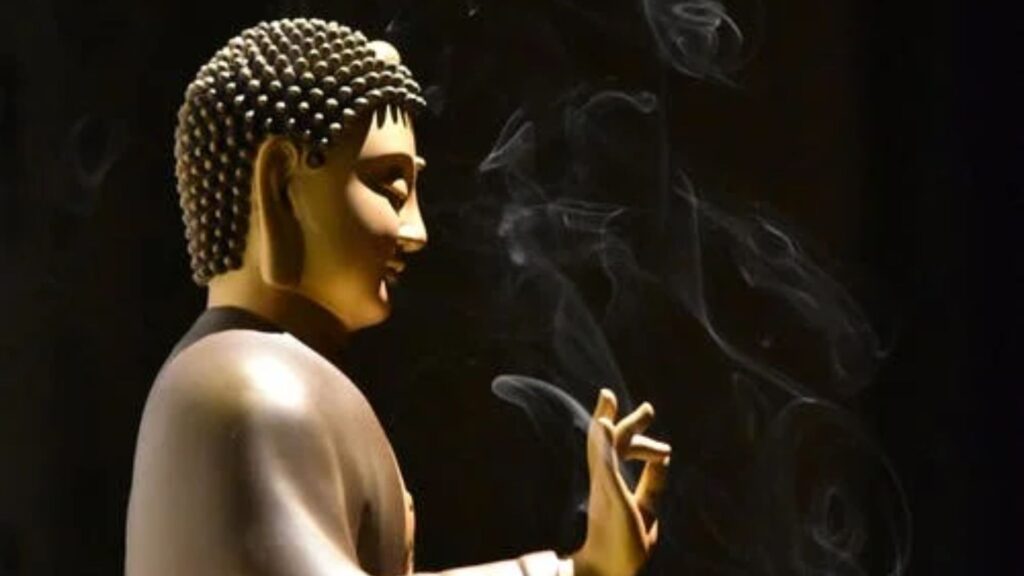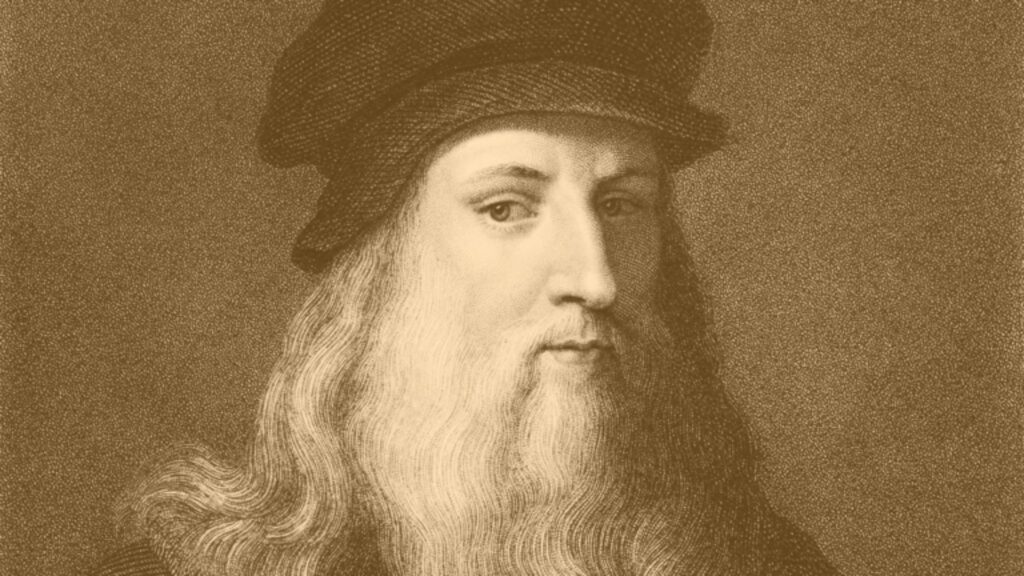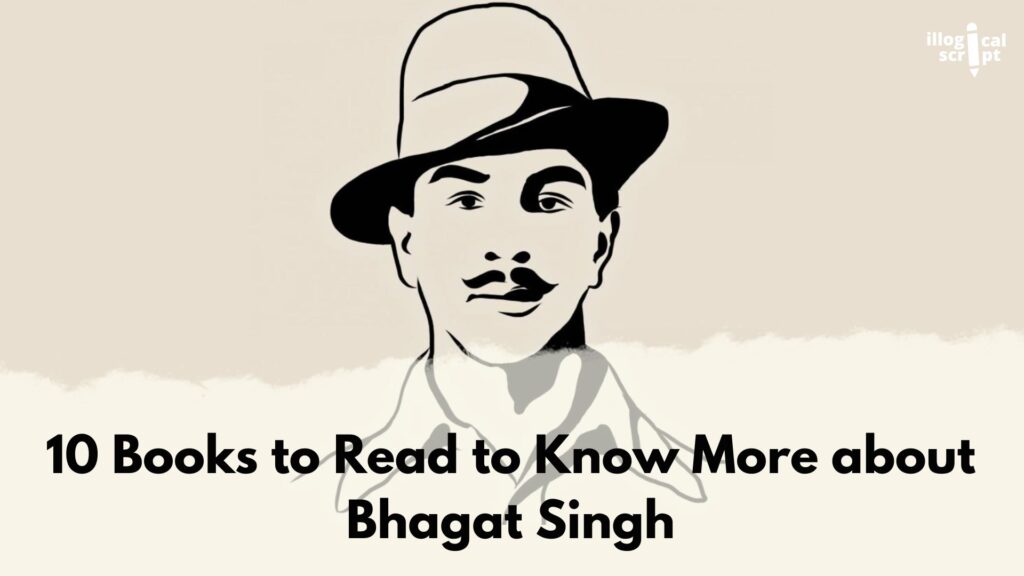In order to live a life, a man must act, make decisions, establish a set of moral principles, and understand who he is and what he is doing. To do this, one require the knowledge of metaphysics, psychology, and ethics, which collectively constitute philosophy. In addition to explaining how we came to have the knowledge we do, it helps you think more clearly. Here, In this article you will find 18 best philosophy books you should read.
I am not as philosophical as I wish I might have been but guess what no one has been from the birth but has learned with time as I am learning with time. It could be because I never thought if I will ever made for this kind of study but I guess time changes everything. A little push from reading fiction to non-fiction to biographies and philosophies made me an avid reader.
Reading books about philosophy can improve your thinking and develop your capacity for a reason because logic and rationality are the foundations of philosophy. You will be capable of understanding the underlying presuppositions of debates, spot logical fallacies, and formulate your well-reasoned perspective on the aspect at hand. You can improve your ability to think critically by studying philosophy.
Now without any further discussion let’s dive into the topic and discuss some of the philosophical books I feel based on my reading and little bit of research should be read.
18 Greatest Philosophy Books You Should Read
Here are some of the most phenomenal philosophy books of all time.
1. Letters from a Stoic
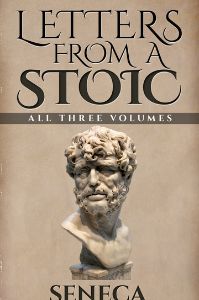
Full Title: Letters from a Stoic
Author: Lucius Annaeus Seneca
Genre: Drama
Publishing Date: c. 65 AD
Description:
The writings in this collection demonstrate the Stoics’ upright principles and praise the excellent style of living as seen through their eyes. They also indicate how far ahead of his time many of Seneca’s ideas were, such as his disdain for arena plays and his critique of enslaved people’s brutal treatment. Seneca’s disguised articles, intellectual in tone and penned in the sharp manner of the Latin Silver Age, were meant for posterity.
2. Zen and the Art of Motorcycle Maintenance
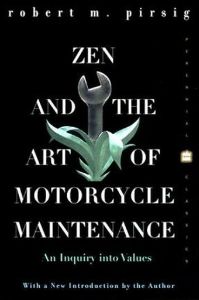
Full Title: Zen and the Art of Motorcycle Maintenance: An Inquiry Into Values
Author: Robert M. Pirsig
Genre: Autobiography
Publishing Date: 1974
Description:
On its release in 1974, this modern epic about a man’s quest for answers became an instant bestseller, hailed as one of the most exciting works in the history of American letters. It continues to influence a large number of people. Zen and the Art of Motorbike Maintenance is an emotional and philosophical voyage into fundamental concerns about how to live, told through a father and son’s eyes on a summer motorcycle vacation.
The narrator’s bond with his kid led to a powerful self-discovery, and the art of motorcycle repair leads to an exquisitely beautiful process of integrating science, religion, and humanism. This timeless masterpiece is a moving and sublime book of life, resonant with the perplexities of existence.
3. Beyond Good and Evil
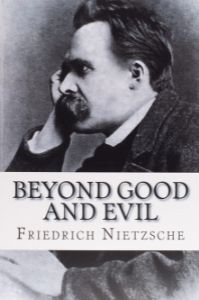
Full Title: Beyond Good and Evil
Author: Friedrich Nietzsche
Genre: Reference work
Publishing Date: 1886
Description:
This book cemented Nietzsche’s status as his generation’s most significant European philosopher. The work vehemently challenges Western thought’s traditional conceptions of truth and God, as well as good and evil. The Christian culture, according to Nietzsche, is entrenched in false devotion and plagued with slave morality.
He shifts from this condemnation to a philosophy that loves the present and asks that each person impose their own will to power on the world with wit and passion.
4. Sophie’s World
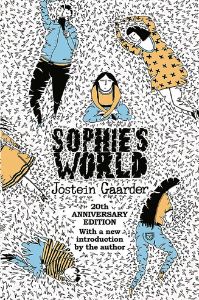
Full Title: Sophie’s World
Author: Jostein Gaarder
Genre: Philosophical fiction
Publishing Date: 1532
Description:
Sophie Amundsen, fourteen, returns home from school one day to find two notes in her mailbox, each with one question: Who are you? & What is the origin of the world? After that intriguing start, Sophie becomes consumed with questions that carry her well beyond what she understands about her Norwegian community.
She joins in a correspondence course, spanning Socrates to Sartre, with a strange philosopher while obtaining letters written to another girl thanks to those letters. Sophie must apply the philosophy she is acquiring to solve this puzzle, but the reality is considerably more intricate than she could have anticipated.
5. Thus Spoke Zarathustra
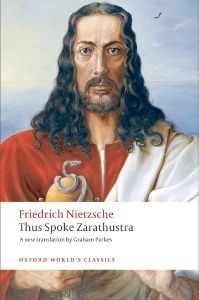
Full Title: Thus Spoke Zarathustra: A Book for Everyone and No One
Author: Friedrich Nietzsche
Genre: Philosophical fiction
Publishing Date: 1883
Description:
It tells the story of how the medieval Persian prophet Zarathustra emerges from his mountain isolation to announce that God has died and that Superman, the human incarnation of divinity, has taken his place. Nietzsche contends, passionately, chaotically, and freely, that the purpose of humanity is to be sought in the all life force, not in religious idiocies or submissive acquiescence.
6. On the Genealogy of Morality
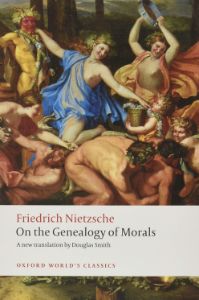
Full Title: On the Genealogy of Morality: A Polemic. By way of clarification and supplement to my last book Beyond Good and Evil
Author: Friedrich Nietzsche
Genre: Philosophy
Publishing Date: 1887
Description:
This is a book about the origin and understanding of ethics. Nietzsche revises the latter as a history of cruelty, revealing the core qualities of the Judaeo-Christian and liberal traditions, compassion, fairness, and justice, resulting from a violent conditioning process aimed at domesticating earlier society’s animal vitality.
As a result, the book raises deeply troubling questions about the brutality of ethics and perception. Nietzsche casts doubt on moral certainty by demonstrating that science and faith have no claim to the ultimate fact, then flipping on his reasoning to cast doubt on their basic premises.
7. Nausea
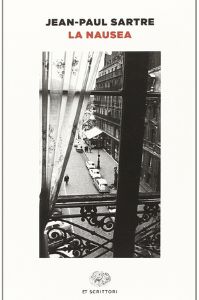
Full Title: Nausea
Author: Jean-Paul Sartre
Genre: Philosophical fiction
Publishing Date: 1938
Description:
Antoine Roquentin is a French author who is appalled by his existence. He ruthlessly documents his every emotion and about the world with people around him in artistic diary style. His thoughts culminate in a widespread, overwhelming feeling of sickness that spreads at the bottom of the sticky liquid, at the bottom of our time, the time of purple stockings and shattered chair seats.
It’s made up of vast, soft instants stretching like an oil stain at the edge. Sartre uses Roquentin’s attempts to come to terms with his life, and his philosophical and theoretical conflicts, to depict the ideas of his Existentialist philosophy.
8. The Confessions of Saint Augustine
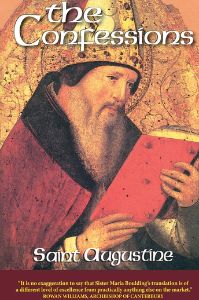
Full Title: The Confessions of Saint Augustine
Author: Augustine of Hippo
Genre: Autobiography
Publishing Date: 49 AD
Description:
Augustine is entirely candid about his arrogant and aspiring youth, beginning with his early life, education, and young transgressions and progressing to prominence as a professor of rhetoric in Hippo, Rome, and Milan. His early affections fade with time, and the sparkle of worldly prosperity fades, leaving him with a sense of inner emptiness until a move towards the Christian faith takes hold, finally leading to conversion and the flowering of a new life.
This timeless classic will endure as long as humanity longs for purpose in life and peace of mind. It is philosophically and doctrinally clever, genuine in its feeling, and simultaneously rooted in history and stunningly modern in its connection.
9. The Brothers Karamazov
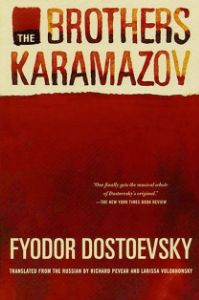
Full Title: The Brothers Karamazov
Author: Fyodor Dostoevsky
Genre: Philosophical fiction
Publishing Date: 1880
Description:
The wicked and sentimental Fyodor Pavlovich Karamazov and his three sons, the reckless and sensual Dmitri, the strictly logical Ivan, and the healthy, red-cheeked young novice Alyoshaare involved in a series of triangular love affairs.
Dostoevsky shows the whole of Russian life, its spiritual and social struggle, in both the golden period and a catastrophic defining moment in Russian culture, through the absorbing incidents of their narrative.
10. Siddhartha

Full Title: Siddhartha
Author: Hermann Hesse
Genre: Philosophical fiction
Publishing Date: 1922
Description:
It tells the story of Siddhartha Gautama, a wealthy Indian Brahmin who abandons a life of luxury and comfort in search of spiritual satisfaction and insight. Siddhartha meets traveling monastics, Buddhist monks, and prosperous merchants on his voyage, a prostitute named Kamala, and a humble ferryman who has reached enlightenment.
Siddhartha discovers that true wisdom is directed from inside while traveling among such people and experiencing life’s crucial milestones, such as love, employment, companionship, and fatherhood.
11. What Does It All Mean?
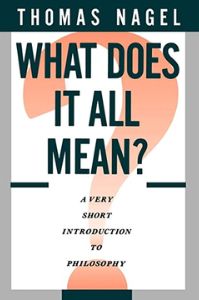
Full Title: What Does It All Mean?: A Very Short Introduction to Philosophy
Author: Thomas Nagel
Genre: Philosophy
Publishing Date: 1987
Description:
In this extraordinary book, renowned philosopher Thomas Nagel takes the reader to the core of nine of philosophy’s most pressing issues. He brings the topics to life in vibrant, approachable prose, explaining why they have perplexed and fascinated numerous philosophers throughout history.
This book pushes us to think hard and correctly, ask questions, argue, try concepts, and react negatively to them. In other words, to become philosophers.
12. Ethics

Full Title: Ethics
Author: Benedict de Spinoza
Genre: Treatise
Publishing Date: 1677
Description:
Benedict de Spinoza penned this philosophical book. In 1677, it was first published. This book is the most comprehensive effort to enforce Euclid’s approach to philosophy to date. Spinoza proposes a small number of meanings and assertions from which he tries to derive hundreds of suppositions and inevitable consequences, such as when the Mind envisions its very own lack of power, it is disheartened by it.
A free guy thinks of nothing less than death, and The human Mind cannot be totally obliterated with the Body, and something of it remains eternally. The Euclidean language is peppered with snatches of conversational and, at times, sassy prose.
13. Metaphysics
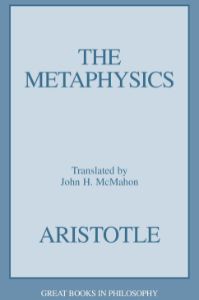
Full Title: Metaphysics
Author: Aristotle
Genre: Treatise
Publishing Date: 1966
Description:
This demonstrates Aristotle’s mature repudiation of the Platonic belief that what we perceive is but a faint true reflection and the problematic notion that all activities are material in the end. Instead, he maintained that the truth or essence of things lies in their physical forms, posing some of philosophy’s most fundamental questions: What is existence? How is it possible to change?
Is there something that must exist for anything to exist? Metaphysics’ critical concepts of substance and allied concepts of form and matter, substance and chance, great potential, and reality have had a significant and continuing influence and established the basis for one of Western philosophy’s major disciplines.
14. Republic
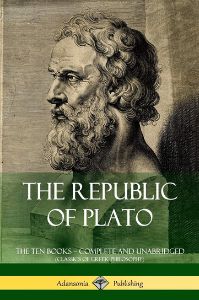
Full Title: Republic
Author: Plato
Genre: Utopian fiction
Publishing Date: 375 BC
Description:
One of the essential works in the history of philosophy is unquestionably the seminal masterpiece of western philosophy. It investigates the idea of the ideal society and the perfect individual within it and is presented as a conversation between Socrates and three distinct debaters.
Other questions, such as what is a virtue, what is truth, what is knowledge, and what is the point of learning are brought up during the discussion. Plato depicts a society in which there are peace and philosopher monarchs rule with extraordinary clarity and skillful wordplay.
15. Discourse on Method
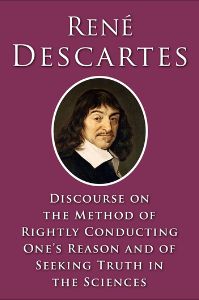
Full Title: Discourse on Method
Author: René Descartes
Genre: Treatise
Publishing Date: 1637
Description:
This one is one of the first significant modern philosophical books not written in Latin. He gave an example of how he applies reason to the pursuit of truth in the sciences. Additionally, he improved the method for representing well-known numbers, making algebraic operations much more straightforward. he offered a provisional moral code to follow when seeking the truth, which included the following principles:
- Obey native laws and traditions
- Base choices on the best available evidence
- Alter needs and wants instead of the external world
- Invariably look for the truth.
16. Justice

Full Title: Justice: What’s the Right Thing to Do?
Author: Michael Sandel
Genre: Philosophy
Publishing Date: 2008
Description:
Is always lying wrong, or are there any exceptional cases? Should there be a cap on individual liberty? If you must kill someone, is it ever justified? Could one say that the free market is a fair one? What would have been the best course of action for everyone? These kinds of problems have vexed human minds for ages. These problems are addressed throughout the book employing both politics and philosophy.
The book was created to discuss a wide range of opposing perspectives on the subject of justice. With an emphasis on moral thought, it is a work for readers of all ages. Its objective is to shed light on numerous justice-related topics from different angles.
17. Being and Nothingness
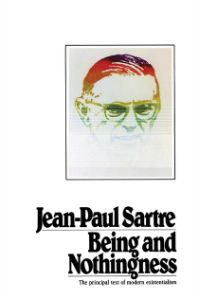
Full Title: Being and Nothingness
Author: Jean-Paul Sartre
Genre: Treatise
Publishing Date: 1943
Description:
This is an excellent and unorthodox examination of the human experience that looks at what gives our life meaning. This piece makes the case that we alone construct our ideals and that liberty and the necessity of choice define our existence.
Human awareness constantly projects itself into the outside world and gives it meaning. This is hardly an internal, inert container for our emotions and opinions.
18. The Meditations of Marcus Aurelius
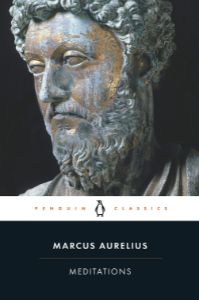
Full Title: The Meditations of Marcus Aurelius
Author: Marcus Aurelius
Genre: Philosophy
Publishing Date: c. AD 175
Description:
The records are some of the most notable examples of this method, showing it to be advantageous in reality. These accurately depict the thoughts and personality of this finest of monarchs.
They preserve for future generations the height of paganism’s ambition in its search to resolve the behavior issue, and the fundamental agreement of his teaching and practice demonstrated that a good life could be led even in a palatial setting.
Final Words
Philosophy is crucial if you want to comprehend who you are and the society you live in. It will prompt inquiries from you. It will help you become a more logical and sensible person who is always attempting to improve and is better able to deal with change, debate, and opposition. Thanks to the above works, I have developed a complete obsession with it.
If you do like this recommendation, do check out more:
